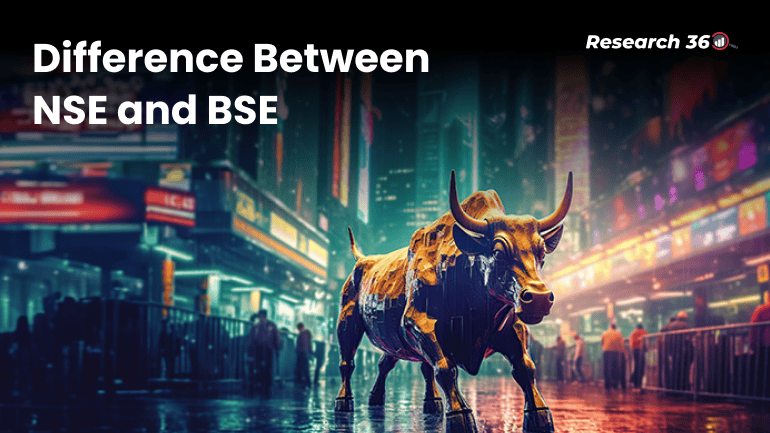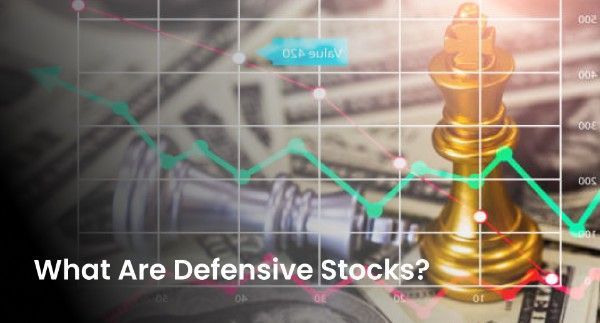Difference Between NSE and BSE

Find out about the key differences between the National Stock Exchange of India (NSE) and the Bombay Stock Exchange (BSE) so you can make informed decisions for your financial future with Research 360.
The stock exchange is an integral part of the Indian financial markets. It is a platform that facilitates the purchase and sale of various asset classes ranging from equity and debt to mutual funds and derivative contracts.
In India, there are two major stock exchanges currently operational - the National Stock Exchange and the Bombay Stock Exchange (BSE). Although they operate similarly, there are a few differences between NSE and BSE. Before we look at the differences, here’s a quick introduction to both the premier stock exchanges of the country.
What is the Bombay Stock Exchange (BSE)?
Established in 1875, the Bombay Stock Exchange is the first-ever stock exchange in India. In addition to being the first stock exchange, the BSE also has the distinction of launching the first equity index in India - the SENSEX. Equities, equity derivatives, bonds, mutual funds, currency derivatives and commodity derivatives are a few of the financial assets that are routinely traded in the Bombay Stock Exchange.
What is the National Stock Exchange (NSE)?
Established in 1992, the National Stock Exchange is the first-ever fully electronic stock exchange in India. Although it initially started operations as an exchange for trading debt instruments, the NSE quickly expanded to the equity cash market as well. The flagship equity index of the exchange is the NIFTY50, which is a compilation of the top 50 companies listed on the exchange in terms of market capitalisation.
What is the Difference Between NSE and BSE?
Now that you’ve been introduced to the two premier exchanges of the country, let’s get to know the differences between the two by comparing NSE vs BSE.
Particulars | Bombay Stock Exchange | National Stock Exchange |
|---|---|---|
| Established in | The BSE was established in 1875 and is the oldest stock exchange in Asia | The NSE is relatively very young and was established in 1992. |
| Trading Mechanism | The BSE had a traditional open-outcry trading system but moved on to electronic trading in the 1990s. The exchange uses the BSE OnLine Trading (BOLT) system. | The NSE has always been a fully electronic trading exchange since its inception. It uses the National Exchange for Automated Trading (NEAT) system. |
| Flagship Equity Index | The flagship benchmark equity index of the BSE is the SENSEX | The flagship benchmark equity index of the NSE is the NIFTY50 |
| Total Number of Listed Companies | The total number of listed companies on the exchange is 5,270 as on July 18, 2023. | The total number of listed companies on the exchange is 2,013 as on March 31, 2023 |
| Market Capitalization | The total market capitalization of all the companies listed on the BSE is approximately Rs. 308.43 Trillion as on July 18, 2023. | The total market capitalization of all the companies listed on the NSE is approximately Rs. 251.95 Trillion as on July 18, 2023. |
NSE or BSE - Which is Better?
Both the National Stock Exchange and the Bombay Stock Exchange offer the same trading experience. The choice between these two ultimately depends on your preference and the exchange in which your preferred stock is listed. For instance, some stocks are listed only on the BSE and not on the NSE and vice versa. That said, most of the well-known mid-cap and large-cap companies are listed on both exchanges.
Conclusion
With this, you must now be aware of the difference between NSE and BSE. The coexistence of these two exchanges is one of the many reasons for the rapid growth in retail participation in the Indian financial markets. Nevertheless, consider factors like liquidity, availability of products and trading volume before selecting your preferred exchange.

















